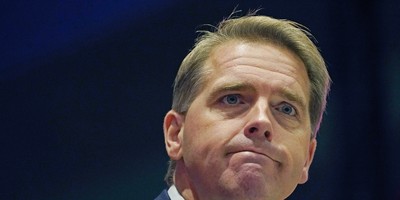After years of deprivation and war, in January 2011 the people of southern Sudan—mostly Christian and African—won their independence from the Arab-Muslim regime in the north. The Republic of South Sudan was born when nearly 99 percent of its people voted to join the community of nations. The road to nationhood was not easy. Years of war ended with a 2005 peace accord that called for democratic elections. A half-decade of negotiations, cooperation, and international support—with the United States at the lead—set the stage for an unprecedented free election where Salva Kiir was voted in as the nation’s first president.
Since independence, the situation in South Sudan has deteriorated to the point of civil war. In 2013, President Salva Kiir dismissed Vice-President Riek Machar allegedly for being "power hungry". The Voice of Africa news (VOAnews) has reported that the rift between President Salva Kiir and his former deputy Riek Machar “has deep roots that reach back to the period before the nation's creation in 2011.” According to VOAnews “Machar started envisioning himself as a more fitting leader in what was then the semi-autonomous region of southern Sudan.” Political in-fighting and hostilities turned into a full-fledged conflict, resulting in thousands of deaths, war atrocities, and 2 million South Sudanese displaced from their homes.
Making the situation worse in South Sudan was the Obama Administration’s absolute insistence—under the threat of penalties—that a peace agreement be signed last August. Seeing an opportunity to build his legacy, Obama intervened in the conflict by pressuring African leaders to support sanctions if both sides did not reach a decision by the arbitrarily set deadline. President Kiir reluctantly signed.
President Obama sacrificed long-term stability in the region for putting a deal together in haste, and today we are seeing the consequences of Obama’s failed policy in South Sudan. The peace accord signed by President Salva Kiir and insurgent leader Riek Machar includes commitments to a cease-fire and a power-sharing scheme where insurgents are given certain government positons during a 30-month transitional period. However, since the August accord was adopted violence has continued. Just this week the Associated Press has reported that “South Sudan's president and rebel leader … blamed each other for breaking the country's cease-fire.”
Recommended
Critics of the Obama policy have pointed to the fact that the August accord rewarded “taking up arms” over “going to the ballot box” in resolving political differences. The Center for Freedom and Prosperity’s Andrew Quinlan discussed in The Hill that the “agreement undermines democracy by forcing the different parties to operate during a transitional period as effective equals, despite the fact that Kiir was overwhelmingly elected president….”
The overarching theme of Obama’s failed foreign policy is “any deal is better than no deal.” We’ve witnessed this “any deal” approach with Russia’s Putin, in Syria, and, perhaps most dreadfully, with the implementation of the Iran nuclear agreement. President Obama’s foreign policy is marked by a hubris that sacrifices international realities for his own political ambitions. His hubris has rendered American power as inconsequential.
Most of us learned as children that “haste makes waste,” and the people of South Sudan would be better off if President Obama had abided by this simple truth. Instead, Obama wanted credit for a peace deal—a deal that put an armed insurgency on equal ground with a democratically-elected government.
Securing South Sudan’s independence took many years of deliberate action and careful diplomacy with multiple international partners working with the United States during the George W. Bush Administration. For a new nation, building a civil society and cultivating trust among people takes time. South Sudan would do best by moving past the Obama “any deal” model to a more deliberate approach to forge a nation and create a lasting peace. President Obama might not get the credit, but over time peace and prosperity for South Sudan matters more than one man’s legacy.























Join the conversation as a VIP Member